Wind House by Rubén Muedra Estudio de Arquitectura
Wind House by Rubén Muedra Estudio de Arquitectura
Wind House is a modern single-story house located in Canals, Spain, designed in 2020 by Rubén Muedra Estudio de Arquitectura.
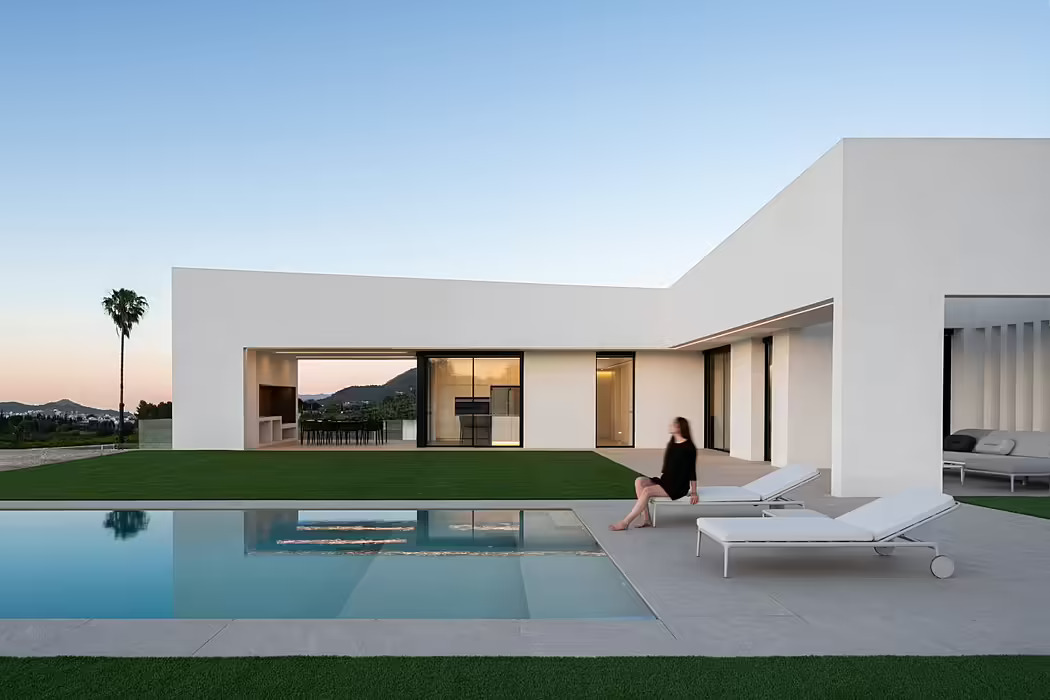
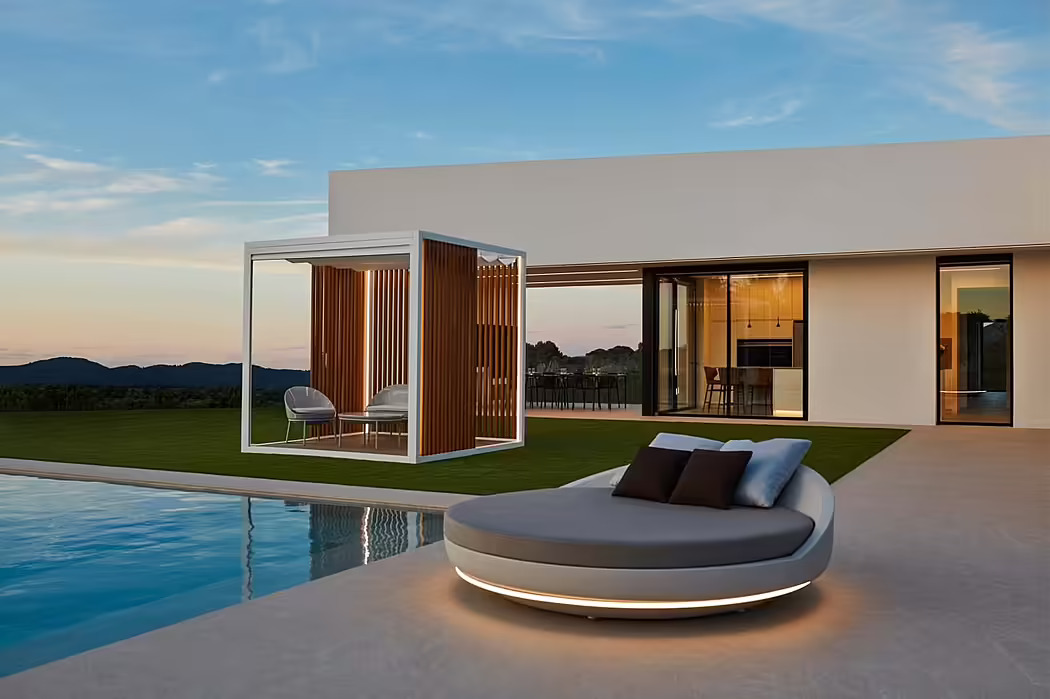
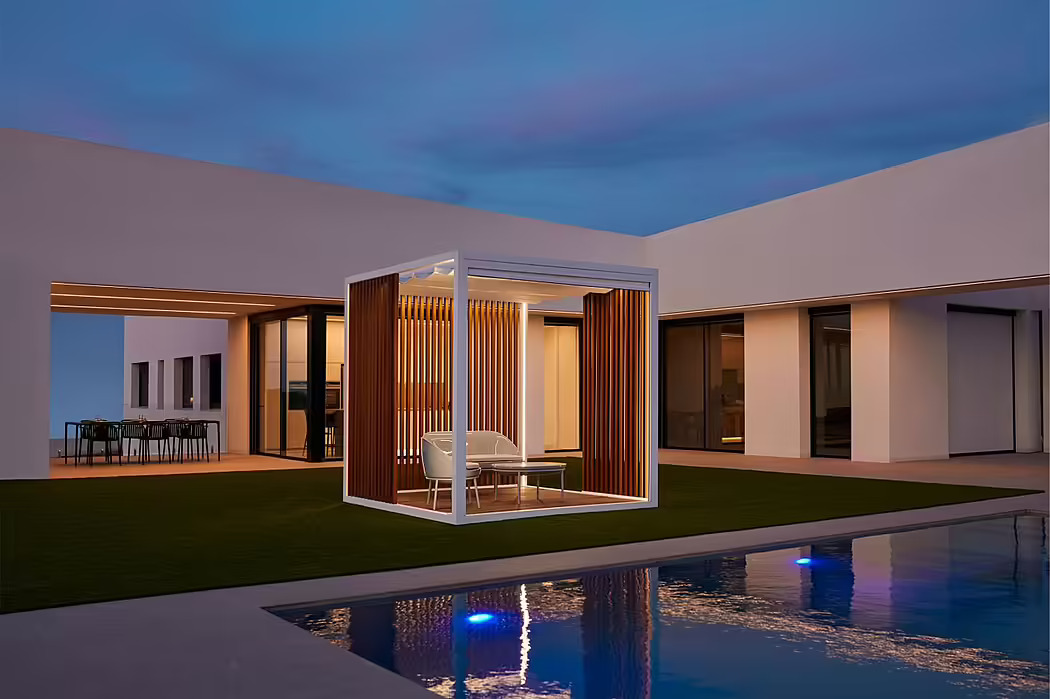
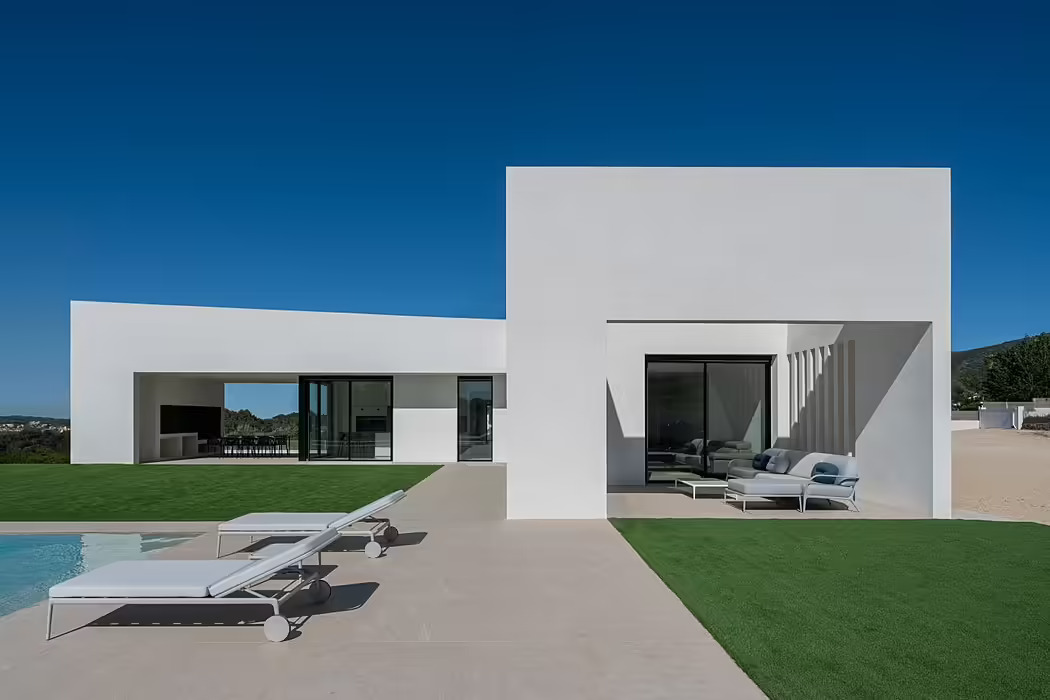
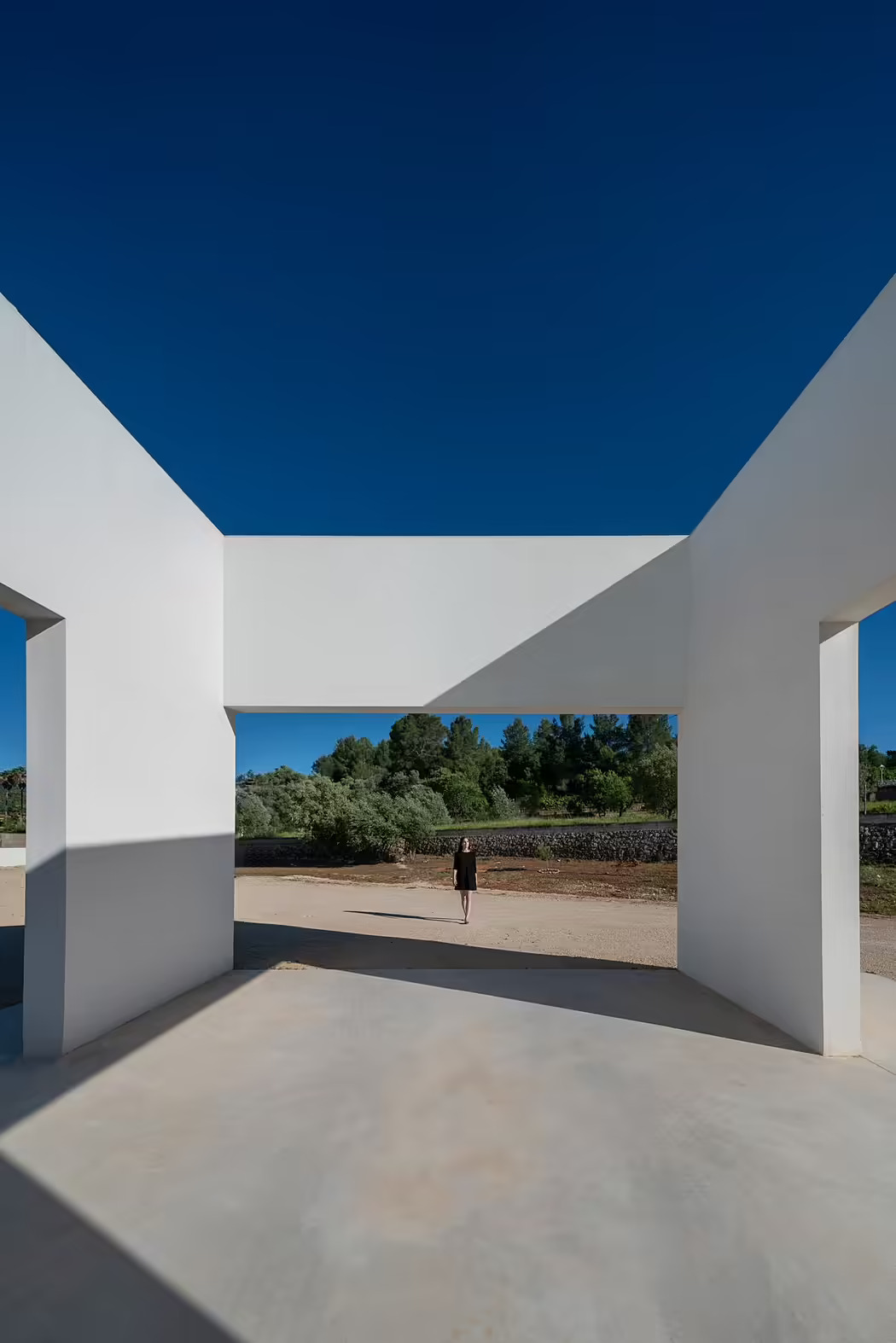
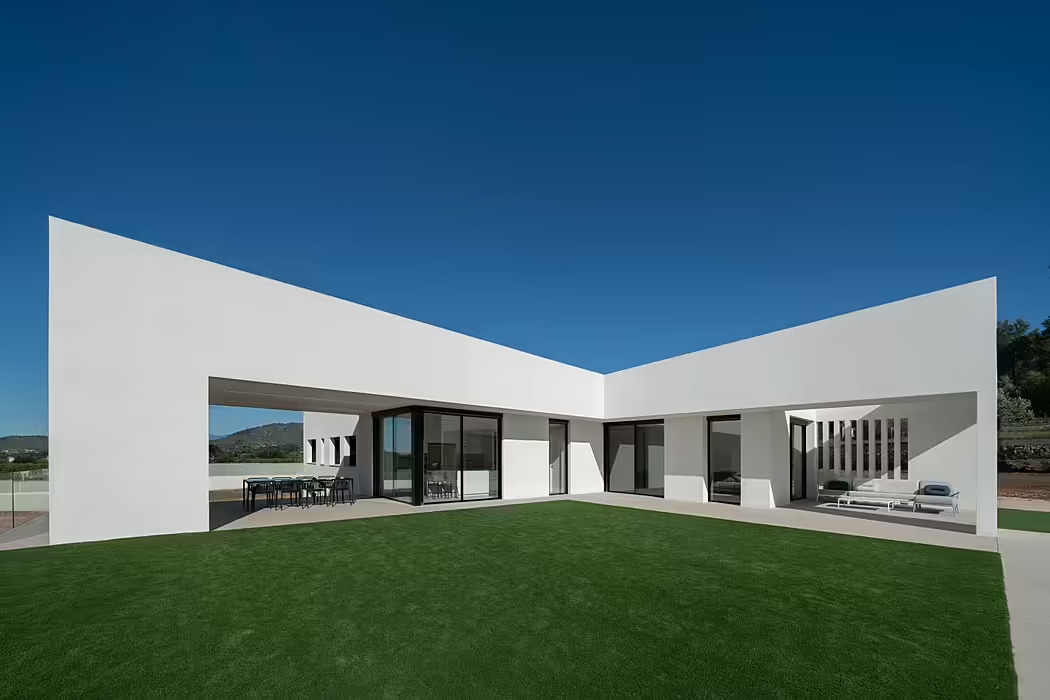
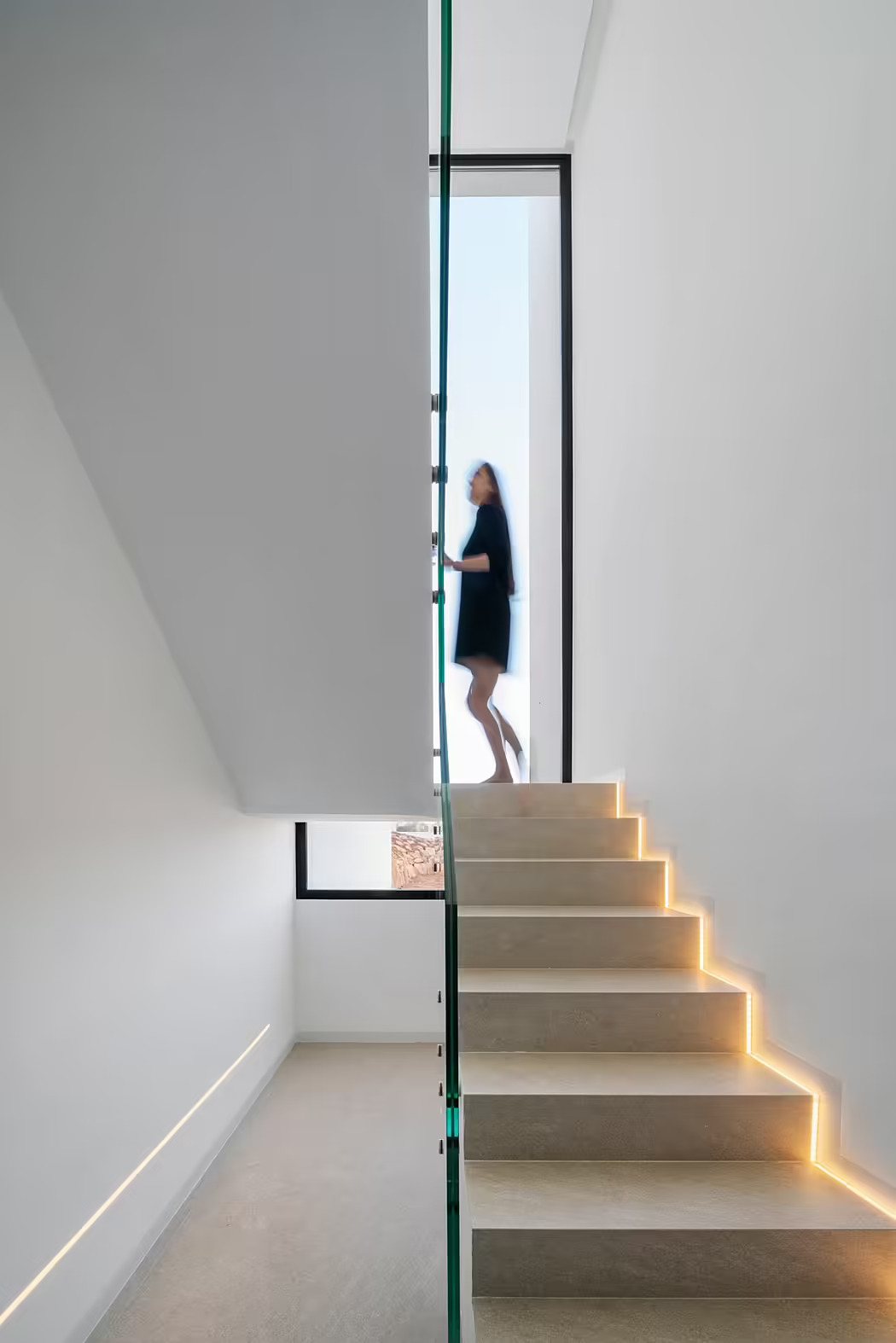
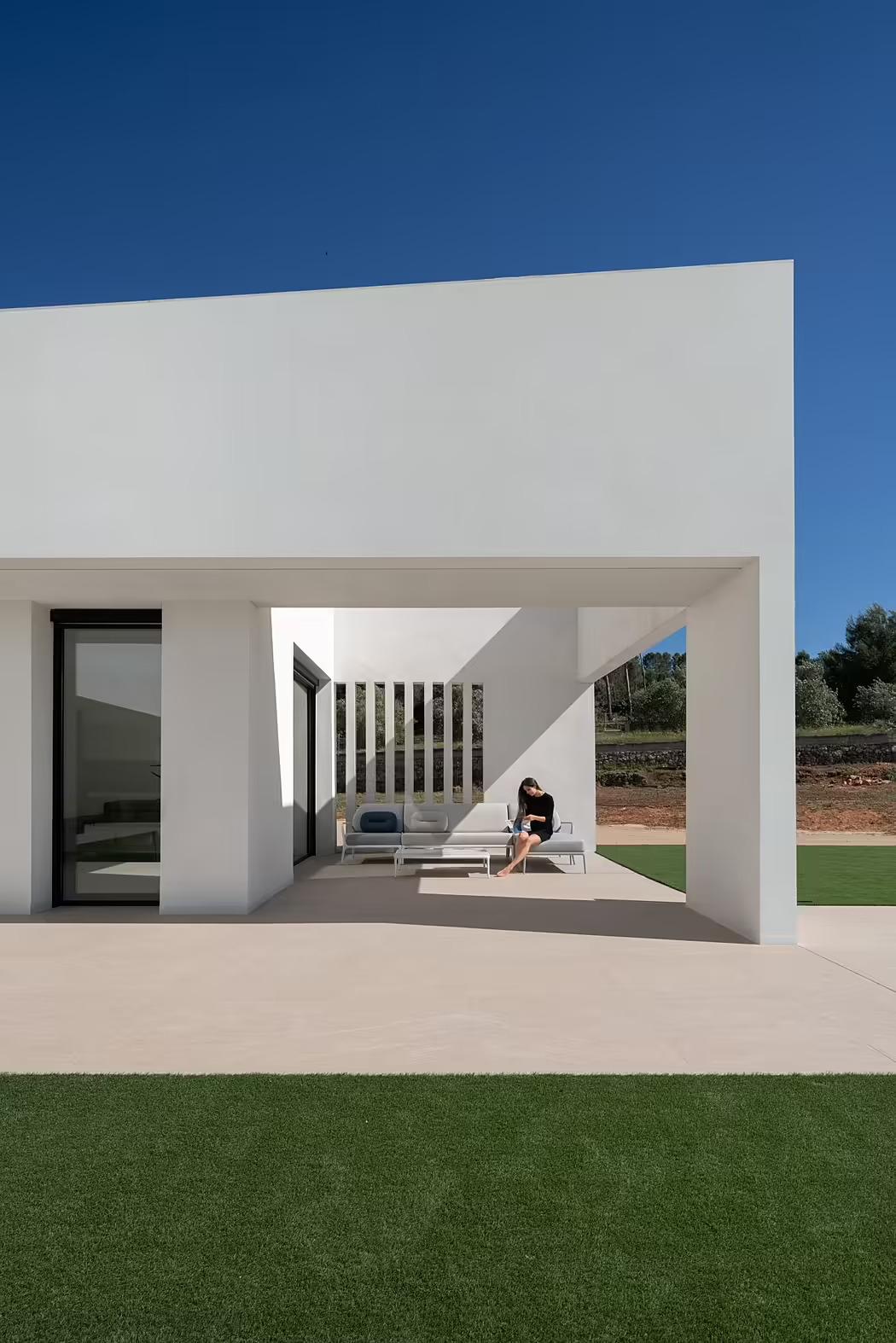
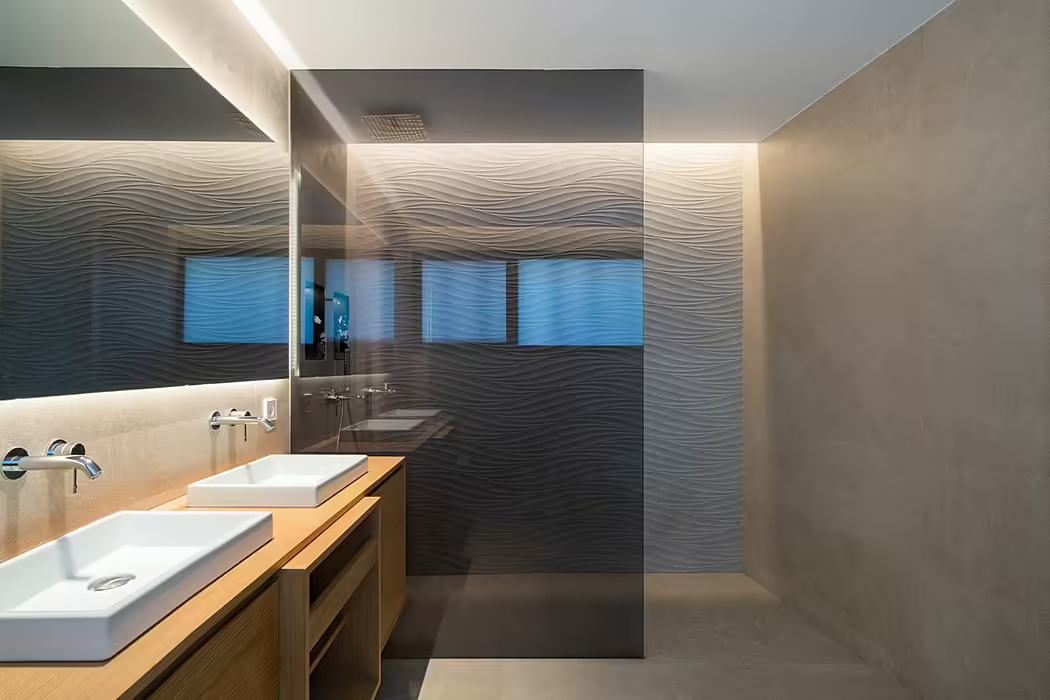

Description
On the outskirts of the urban area of Canals and surrounded by olive and citrus groves, a dwelling has been designed based on the principles of a traditional typology that respects the place where it stands.
The search for landscape and environmental integration while respecting the rural environment is the result of the decision to develop the programme on a single storey.
Based on four prismatic volumes, we have managed to fragment, organise and zone the exterior space. At the same time, each of them will contain and be destined to a different interior use. The interstitial area that joins the four blocks functions as a vestibule that connects each of the living spaces.
Each of the blocks extends on the plot in different directions and orientations, with this gesture a cross shape is obtained. In this way the different exterior areas that are generated are linked to the different interior spaces in a unique and particular way.
The entire programme of use is developed on the ground floor, except for the night block and the north-facing server spaces, which takes advantage of the depression in the terrain to have two floors. Each part that makes up the house has a height depending on its use, with the most noble spaces of the house having a greater height.
The roofing is made up of a sloping roof of Arabic tile, following the rural typology of the area. The inclination of the roof is inwards, which gives each of the pieces that make up the house greater depth. This operation means that the perspective provides the geometry with a greater length for each of the blocks.
The central nucleus, where all the pieces converge, is materialised as a longitudinal volume which, oriented north/south, opens up to the exterior through a large window, enjoying long views of the fields as a welcoming canvas. This vertebral axis divides the house, organising it on one side into two wings destined for the day area, containing the living room, dining room and kitchen. And on the other hand, this distributor gives access to another of the two wings that brings together the night area and server uses.
Three of the blocks have a porch at the ends, one with a garage function and the other two as an exterior extension of the living room and kitchen spaces. Each of them face south-east, south-west and north-west respectively, giving the interior spaces a wealth of uses depending on the time of day.
The swimming pool is conceived as another volume, dug into the terrain and linked to the house by paved areas and artificial grass.
The light and the white rendering typical of Mediterranean homes will be the only materials that will contrast with the red clay typical of the place.
The stone paving is continuous from inside to outside and even in the swimming pool, providing maximum continuity between the two spaces. In this way the limits are blurred and the outdoor space is enjoyed as an extension of the indoor space.
The continuous white ceilings integrate air conditioning installations and indirect lighting, sound and audiovisual systems.
In short, the house responds to the environment by appropriating the surroundings and being able to adapt to them using minimalist architecture with a Mediterranean identity.
Photography by Adrián Mora Maroto
Visit Rubén Muedra Estudio de Arquitectura
- by Matt Watts
扫描二维码分享到微信